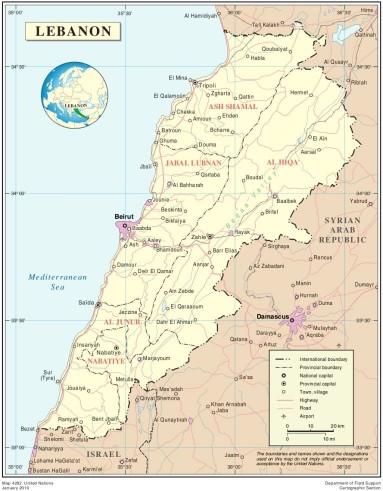Zurich supports first-flight city in Lebanon
July 17, 2017 - Christina Wandeler
In autumn 2015, the City of Zurich launched the so-called First Flight City Project as part of its refugee policy action programme. As a privileged city, Zurich wants to work directly with a city close to a conflict zone – a city that is heavily burdened by refugees. The project is two-part: The first phase, in which three "Community Support Projects" in southern Lebanon were supported, was successfully completed. In a second phase, a cooperation with the city of Tyre is now to be initiated.
Dramatic refugee situation
More than 60 million people are now on the run – more than at any time since the Second World War. According to the UN refugee agency UNHCR, 34,000 people are displaced from their homes every day. Of the more than 60 million refugees worldwide, about six percent reach Europe – including Switzerland.
In autumn 2015, the number of asylum seekers in Switzerland – as in many places in Europe – increased significantly in the course of the Syrian conflict. The city of Zurich was also strongly challenged by this. The consequences of this mass migration affect the cities in particular: two-thirds of all refugees stay in cities – in the hope of security, work and a new perspective on life.
In view of the exceptionally dramatic situation in autumn 2015, the City of Zurich decided to make a solidarity contribution. As a result, it has launched a refugee policy action programme that goes beyond its regular refugee and integration policy. This program includes local but also international interventions.
Help from city to city
Even if the public discourse repeatedly speaks of refugee "waves", "masses" and "streams" that "break in" over Europe, so to speak, one thing must be clearly remembered again and again: Over 90% of refugees are not in Europe and never make it to Europe. Most of them remain in developing and emerging countries. In the context of the Syrian war, the neighbouring countries of Jordan, Lebanon and Turkey are primarily affected.
The international commitment of the City of Zurich is therefore based on the intention of supporting a so-called "first flight city". As a privileged city, Zurich wants to work directly with a city close to a conflict zone – a city that is heavily burdened by refugees.
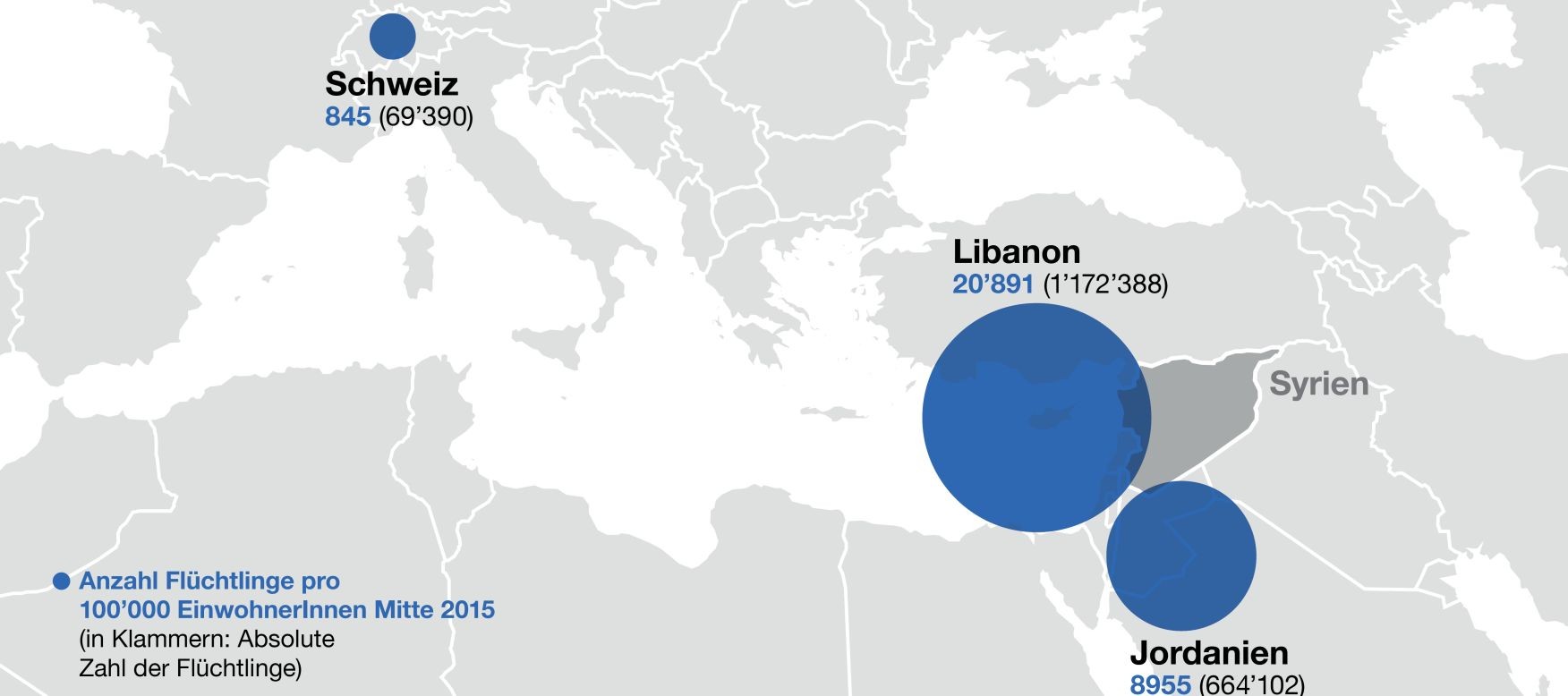
In terms of population, Lebanon is the country that has taken in the largest number of Syrian refugees. The Lebanese towns and villages, including the Palestinian refugee camps in the country, are now burdened by the integration of refugees from Syria to an extent that is hard to imagine in Europe. That is why Zurich has set itself the goal of supporting one of Lebanon's many "first-flight cities" in partnership – pragmatically and in direct cooperation with the local authorities.
With this "city-to-city aid", the local authorities and the population should be able to better integrate "their" refugees. The aim is not only to concentrate support unilaterally on the refugees. The local population should also benefit from Zurich's commitment. This aspect is very important in order to promote social cohesion in these heavily polluted communities and to maintain good coexistence.
Since this project requires in-depth knowledge of the institutional and political situation on the ground, the city has been working with partner organisations with the necessary know-how since the beginning of the project.
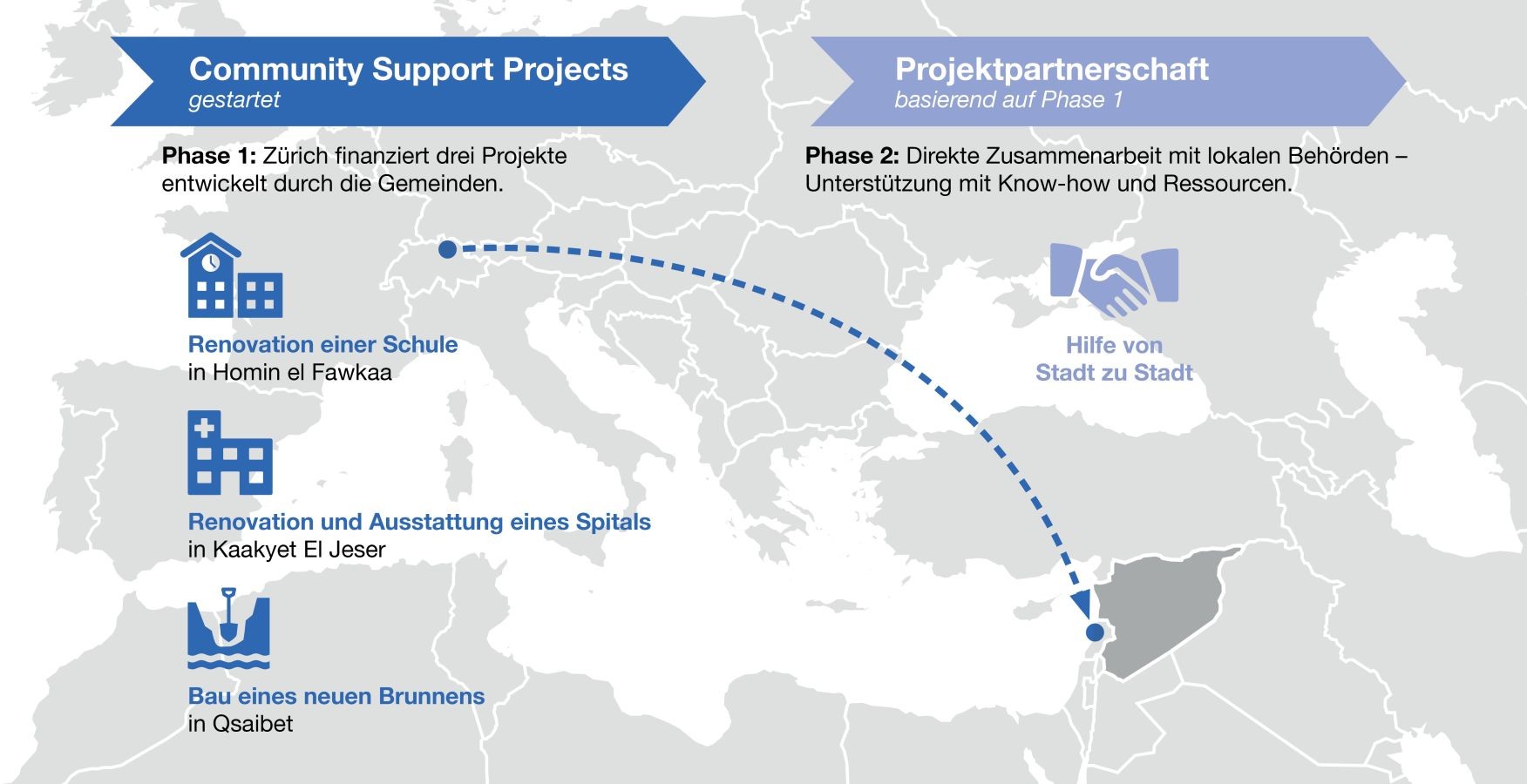
Phase 1: Three "Community Support Projects" successfully implemented
With the help of Solidar Suisse, a call for tenders for three project submissions for around CHF 35,000 each was launched in the summer of 2016. All affected actors, including Syrian refugees, were already involved in the project design. Solidar Suisse held talks with 34 municipalities. Six projects were finally submitted and reviewed. Three projects were submitted to the City of Zurich for approval. The implementation of these three projects started last December. Two were completed at the end of March 2017, one is nearing completion.
All three projects are located in the south of Lebanon, in the region of Nabatieh.
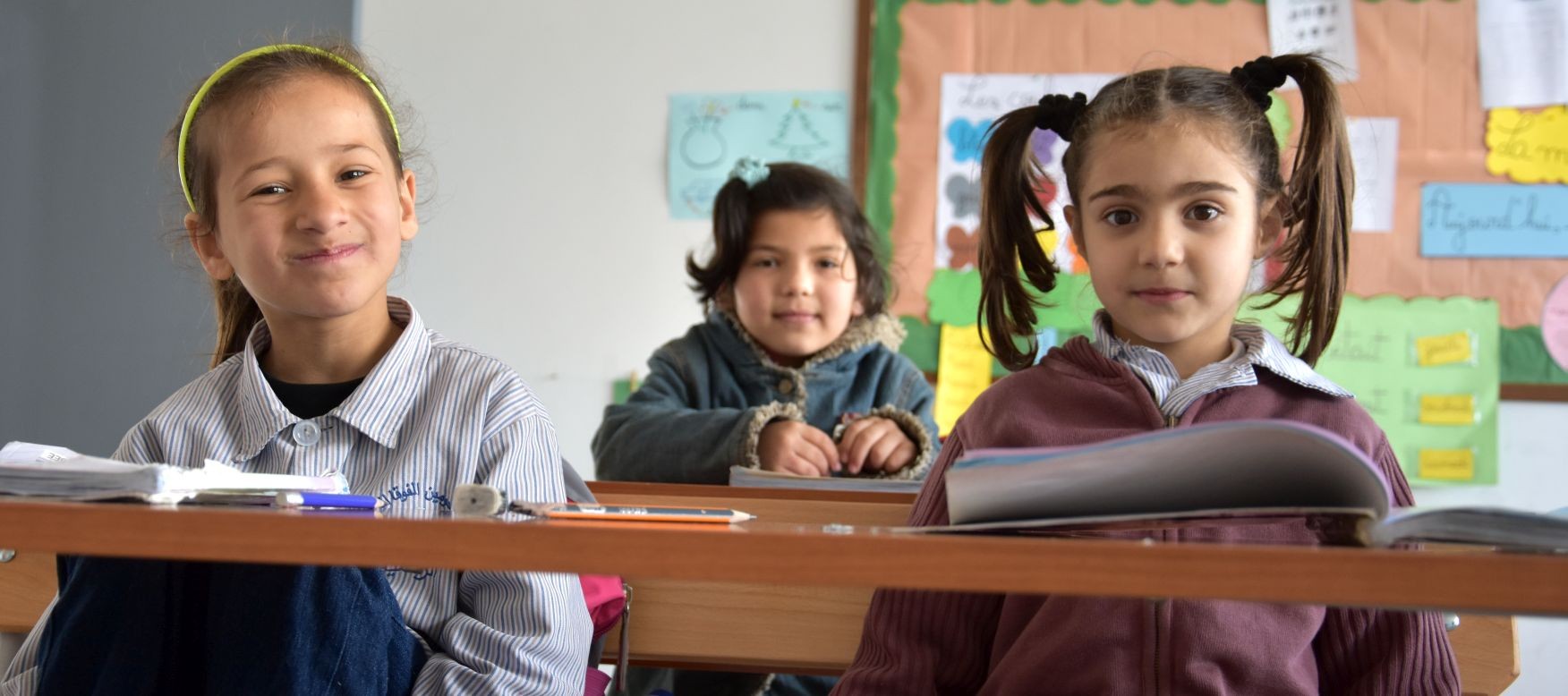
In the first project, a school in Homin el Fawkaa was renovated and equipped with additional material such as blackboards and school benches. The school was not equipped to accommodate the increasing number of pupils. Refugee children had to travel long and expensive distances to neighboring villages. With the support of Zurich, for example, the school's sanitary facilities were renewed and expanded, new drinking water filters were installed and additional desks, chairs and blackboards were made available. Thanks to these measures, the school will be able to take in more than 40 additional Syrian refugee children in 2017.
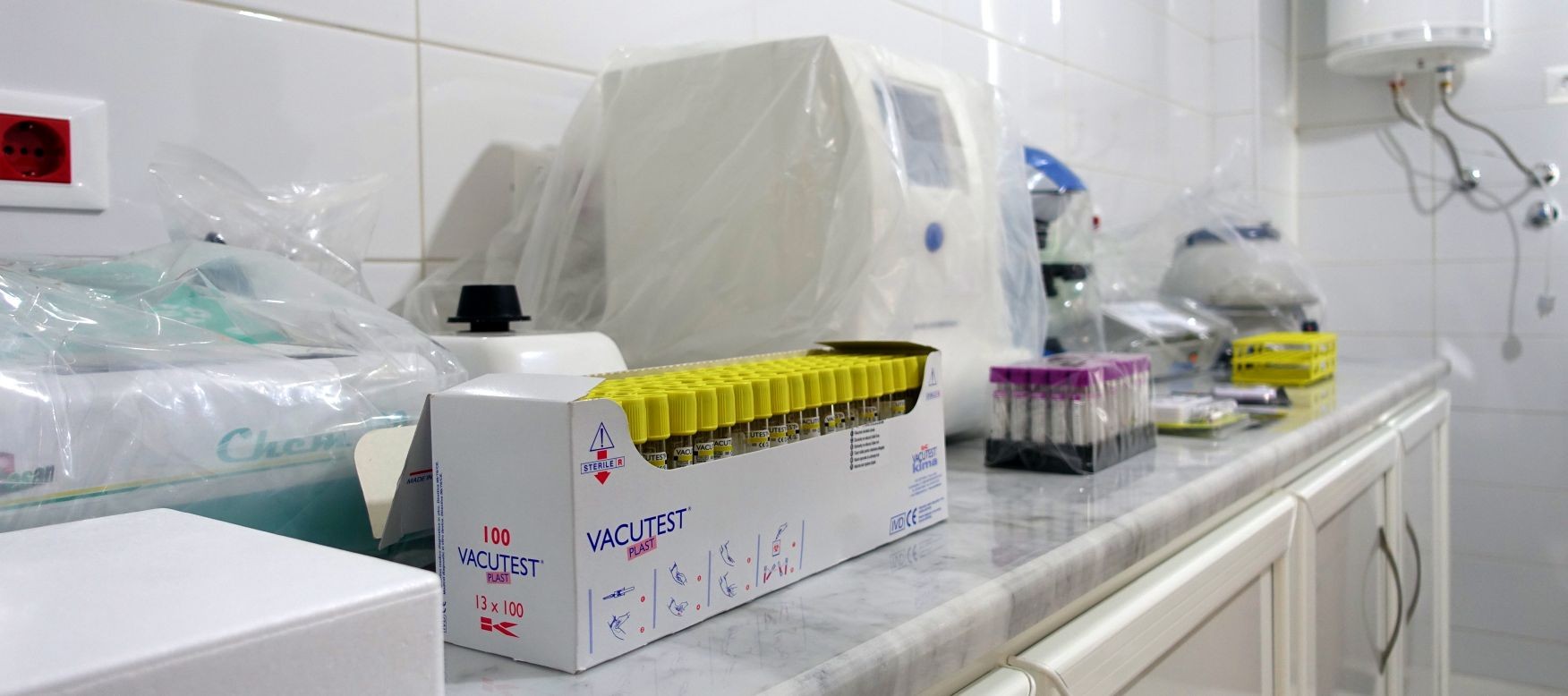
As part of the second project in Kaakyet El Jeser, a health centre that cares for around 20,000 patients from five neighbouring communities – mostly poor Lebanese and refugees – was renovated and equipped with a medical laboratory. The health centre was unable to cope with the large increase in patients caused by the refugee crisis. This supply shortage led to serious tensions between the local population and the refugees. The focus of the project was the establishment of a laboratory in which basic medical tests can be carried out directly on site. This avoids long and costly journeys for patients to more distant hospitals. Thanks to the project, a total of 50% more people can now be cared for.
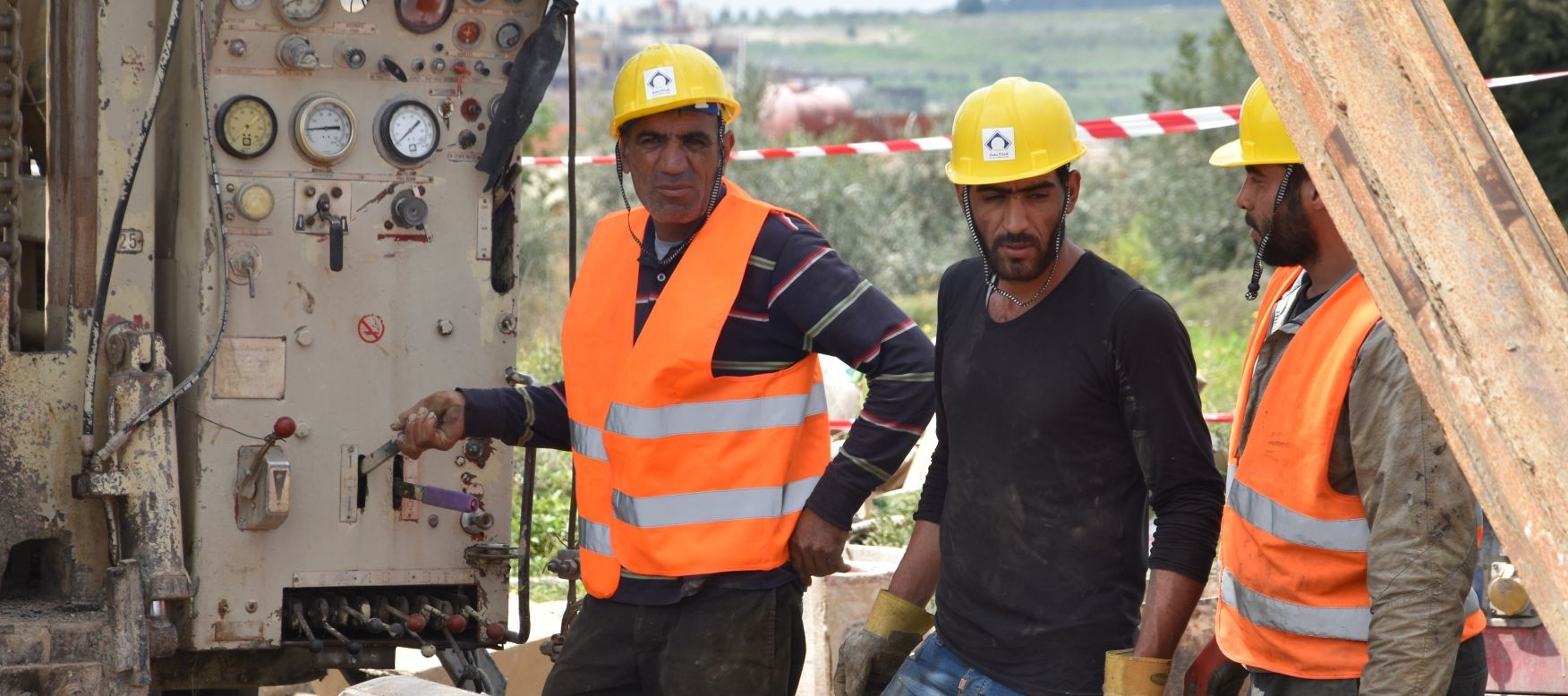
In the third project, a new drinking water well is being drilled in Qsaibet. Due to the sharp increase in population and the pollution of many drinking water sources, there is not enough clean drinking water in many communities – this also leads to tensions between locals and refugees. The new well is intended to improve this. Its completion is imminent.
Phase 2: Focus on city-to-city aid
In a second phase, the city of Zurich would like to focus on a direct exchange with a Lebanese city and enter into a temporary project partnership with Tyre in southern Lebanon. The aim is to contribute to a sustainable strengthening of local structures by establishing and expanding technical expertise in central areas of municipal services – for the benefit of the local population and refugees.
A challenge and an opportunity at the same time in this context is the weak position of the communal level in Lebanon. Most Lebanese cities and municipalities have far too few financial and human resources to provide urgently needed services to their own population and refugees. There is a need in the institutional (e.g. local governance, financial planning, project management) as well as in the technical area (e.g. knowledge management), but of course also in the field of municipal services (in particular wastewater and waste management, drinking water supply, etc.). As a city with proven experience in all these areas, Zurich can make an important contribution to strengthening Lebanese cities in addition to the work of numerous NGOs on the ground. Cooperation with an experienced partner organisation is also necessary for the implementation of the second phase. It is envisaged that UN-Habitat (Lebanon) will be responsible for the implementation of the project on the ground. The United Nations Human Settlements Programme (UN-Habitat) is committed to promoting socially and environmentally sustainable cities and communities. In Lebanon, UN-Habitat has been helping to strengthen local structures for many years, among other things by building up expertise within the municipal structures and thus helping the communities to independently ensure the care of their own population and refugees. As part of these activities, the City of Zurich would like to enter into an exchange with the City of Tyre and make an active contribution, including in the form of capacity building.
During a one-week visit by a small Delegation from Zurich to Lebanon at the end of March 2017, insightful discussions with UN-Habitat as well as with representatives of cities and other institutions have already been held in cooperation with the Swiss Embassy.
More information
- Weiterführender Link Zurich Migration Conference 2017
Background
With the First Escape City Project, the City of Zurich is supporting a city in Lebanon in coping with its challenges in connection with the refugee situation. In a first phase, Zurich supported three so-called "Community Support Projects" in close cooperation with Solidar Suisse. In the second phase, a temporary project partnership with a Lebanese city is to be established if possible.
Costs: The costs for the first phase amount to CHF 150,000. A total of CHF 350,000 has been earmarked for the second phase.
Duration: Phase 1 2015–2016, Phase 2: 2017–2019
